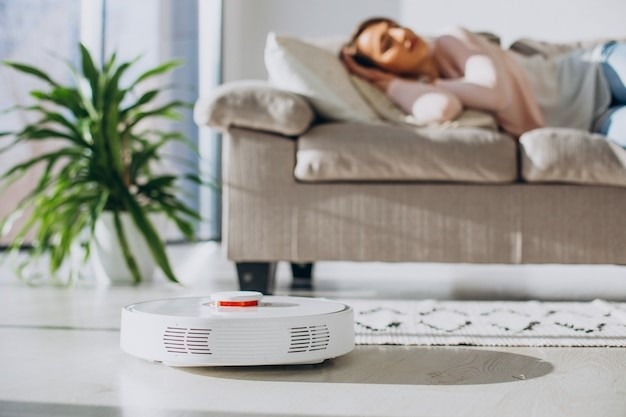Modalert 200 tablets may interact with some medicines like antipsychotics, which could increase the risk of side effects. Also, it should be used with caution in patients with heart diseases, as it may cause excessive drowsiness or shallow breathing.
Some common side effects include headache, nausea, diarrhea, indigestion, nervousness, and anxiety. To reduce these symptoms, it’s important to follow the medication instructions and take it exactly as prescribed by your doctor.
How Modafinil Works
Modafinil is a psychostimulant drug used to treat shift work disorder, narcolepsy, and other sleep disorders. It has several cognitive-enhancing effects, including alertness and mood enhancement. It can also reduce the drowsiness associated with jet lag. The drug has also been shown to reduce fatigue in people with depression, mania, and schizophrenia.
Researchers at Oxford University in England recently evaluated 24 studies on the effect of modafinil on various aspects of cognition. The authors found that the drug enhanced a person’s ability to complete a task, but did not significantly improve his or her creativity or motor excitability. It also did not consistently improve a person’s working memory, flexibility of thought, or ability to divide attention.
The lower dose promoted wakefulness and locomotor activity, while the higher dose suppressed both. However, neither of the doses increased resting ventilation or the ventilatory responses to hypercapnia or hypoxia. Moreover, both of the doses of modafinil did not increase tidal volume. The discrepancy may be due to species differences and the relative weakness of the ventilatory suppressive action of modafinil.
Modafinil Increases Levels of Serotonin and Dopamine
Modafinil 200mg Online blocks DAT and increases levels of dopamine in the brain, a mechanism that may explain how it produces its stimulant effects. The increase in dopamine is similar to that seen with other drugs used to promote wakefulness, such as amphetamine and methylphenidate. Unlike these other agents, modafinil does not seem to increase the risk of addiction.
Another possible mechanism for modafinil’s stimulant effect is through a disruption of the positive feedback loop between free-radical production and mitochondrial ATP production. This is a possible explanation for why modafinil can increase the cortical creatine-phosphocreatine pool more than other stimulants, such as methylphenidate and phenytoin (Long et al 2003).
In addition to its anti-oxidative effects, modafinil also acts directly on enzymes in the brain’s free-radical scavenging system (e.g. glutathione peroxidase or superoxide dismutase). This may cause a reduction in the free-radical level, which is thought to lead to an increase in the phosphate gradient within neurons.
Finally, modafinil’s effects on arousal and memory are not exclusively dependent on the orexinergic system, as was demonstrated in a study of rats that were congenitally missing both alleles of orexin. The researchers found that modafinil was still able to produce arousal and increase wheel running activity in these rats, as well as to improve performance on a delayed nonmatching to position task.
Modafinil Causes Drowsiness
Modafinil (2-[(phenylmethyl) sulfinyl] acetamide), commonly known as Provigil, is a wake-promoting medication that has been used to treat patients with sleep disorders like narcolepsy, shift work sleep disorder, and obstructive sleep apnea. It is a powerful stimulant that has been shown to improve cognition in healthy subjects.
In a study published in the journal European Neuropsychopharmacology, scientists found that modafinil was able to enhance performance on a variety of tasks. It was also able to reduce fatigue. These findings suggest that modafinil may be the first pharmaceutical nootropic drug, a drug that can improve cognitive function without causing excessive side effects.
It does this by stopping nerve cells from reabsorbing dopamine, an excitatory chemical. As a result, dopamine levels remain elevated and people taking modafinil experience fewer drowsy episodes. Modafinil is not addictive and does not cause the highs or lows associated with some other drugs, including cocaine and amphetamines.
Military researchers have found that modalerts can mitigate combat fatigue by enhancing vigilance and psychomotor activity. Combat fatigue is caused by many factors, including extended duty periods, unpredictable work schedules, circadian rhythm disruption, stress, and fear.
Modafinil has also been tested for its alertness-enhancing effects in simulated combat situations. The results have been promising, and the drug is of interest to the US military for its ability to increase vigilance on the battlefield.
Modafinil Causes Dizziness
The drug modafinil (brand name Provigil) is a wakefulness-promoting agent that is used to treat excessive sleepiness in patients with narcolepsy and shift work sleep disorder. It is also used along with breathing devices to help people who have obstructive sleep apnea/hypopnea syndrome get more restful sleep.
People who take this medication may feel dizzy. They should avoid driving and using machinery until they know how it affects them. It is not recommended to drink alcohol or use marijuana (cannabis) while taking this medicine.
Modafinil is known for its alertness-enhancing and anti-fatigue effects and has been referred to as the first well-validated pharmaceutical nootropic drug. This makes it more practical, even ideal, as a combat fatigue-alleviating drug.



